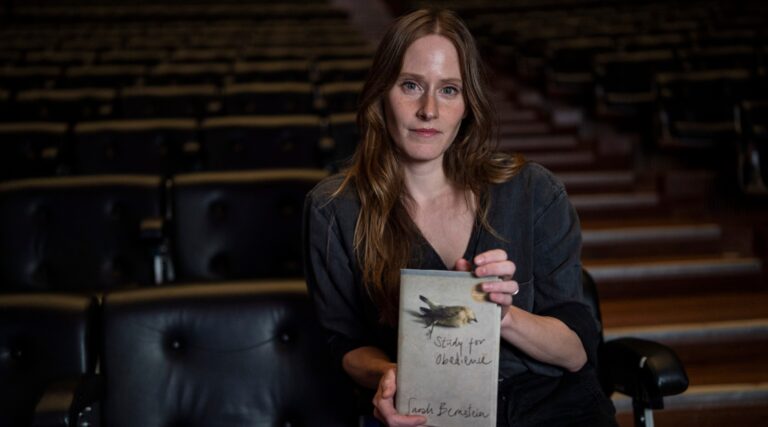Sarah Bernstein, a Jewish author, won the Giller Prize a year ago for her novel “Study For Obedience.” The ceremony, broadcast on CBC, faced a moment of pro-Palestinian protest that was edited out.
This year, ahead of the Giller Prize ceremony, numerous Canadian authors withdrew their books in protest of the prize’s ties to companies doing business with Israel. Among the boycotting authors was the recent Giller Prize recipient, Sarah Bernstein.
The authors demanded that the prize pressure its main sponsor, Scotiabank, to divest from an Israeli weapons manufacturer and cut ties with organizations funding pro-Israel causes. Bernstein, known for her novel on antisemitism, also supported the boycott.
Despite efforts to appease the protesters by dropping Scotiabank’s name from the prize, backlash continued. The demand to divest from companies involved in mass killings remained unaddressed.
The Giller Prize faced further scrutiny for its handling of the situation, with accusations of antisemitism and a divide between the prize’s purpose and political demands.
The ongoing controversy highlighted the challenges faced by cultural organizations in navigating political issues, with tensions rising and accusations being exchanged.
The Giller Prize’s struggle with the boycott and demands related to Israel reflects a broader trend of cultural institutions facing pressure to take a stand on political issues.
As the literary world grapples with these challenges, the Giller Prize remains a focal point for discussions on the intersection of art, politics, and social justice.

Elana Rabinovitch, Scotiabank Giller Prize Executive Director, attends the 2023 Scotiabank Giller Prize ceremony at Four Seasons Hotel Toronto on November 13, 2023 in Toronto, Ontario. (Jeremychanphotography/Getty Images)

